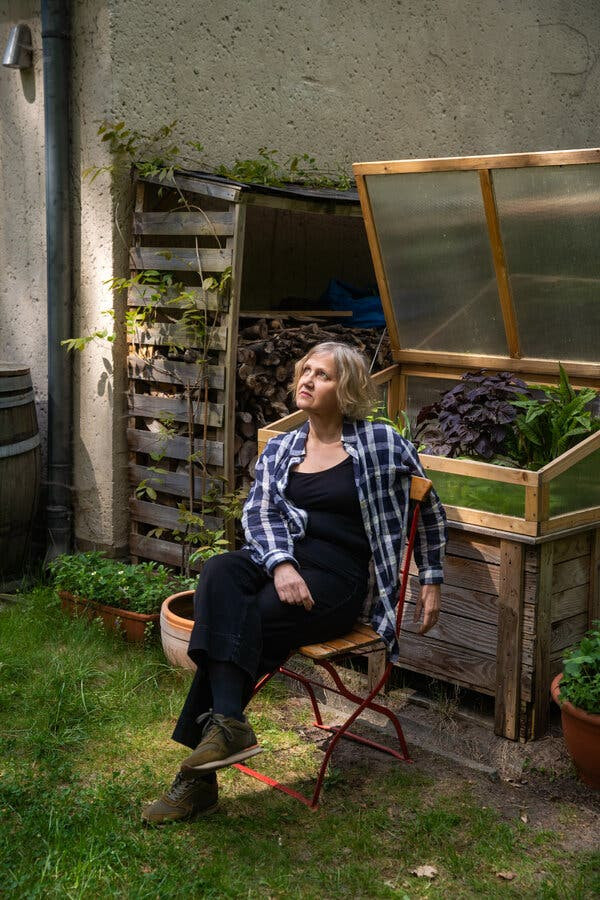
One morning this January, Susanne Bücker, a family doctor in Berlin, woke up worried. National elections were approaching, and President Trump’s most vocal advocate, Elon Musk, was publicly supporting Germany’s far right party, the Alternative for Germany (or AfD), whose leaders have spouted Nazi slogans and downplayed the Holocaust. Dr. Bücker sent a letter to her neighbors.
“Tomorrow is the 80th anniversary of the liberation of Auschwitz,” she wrote, expressing her fear that fascism was again taking root in Germany. Over the next few weeks, about 40 neighbors got together, lighting candles in their front gardens as part of a nationwide “chain of lights” protest against hate and hanging pro-democracy signs in their windows.
“I think we have a special responsibility,” Dr. Bücker, 62, said recently over a cup of tea. “Because we live on an estate that was built by perpetrators, for perpetrators.”

Their quiet little neighborhood, Waldsiedlung (or “Forest Estate”) Krumme Lanke, is a sought-after place to live in the German capital. Named after an adjacent lake, its residents compare it to a fairy-tale village: Little peaked-roof cottages with wood shutters are built into a dense green forest crisscrossed by mossy paths. Whole swaths are carless. Children play in the gardens, while dogs run free on a sloping meadow. In the summer, a short walk in flip-flops and a bathing suit leads to the lake.
But life here also means channeling Germany’s brutal past: The neighborhood was built in the lead-up to World War II as an “elite community” for the S.S., or Schutzstaffel — the elite guard of the Nazi Reich, whose responsibilities included carrying out the Holocaust.